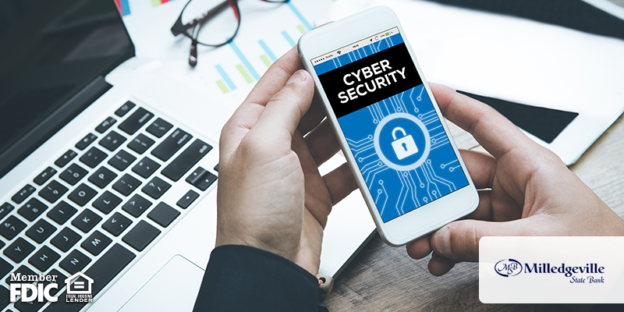As time goes on and technology expands, people are becoming more and more prone to cybercriminal attacks. By following some basic tips, you could avoid a multitude of problems in the future!
1. Use Strong and Varying Passwords
This is probably the most obvious and common cybersecurity tip known to web users. Don’t underestimate the importance of your password strength! Change your password every once in a while to be safe (recommended at least once a year). Also, don’t use the same password for more than one account.
2. Be Careful With Your Personal Info
Personal information, like your address, birthday or phone number, should be posted carefully. The smartest option would just be to keep as much of that information off of your social media as possible. These personal details are used by cybercriminals to locate individuals. Better safe than sorry!
3. Recognize and Stay Away From Phishing
Phishing is when someone poses as someone they aren’t to trick people into giving them information, clicking on a dangerous link, etc. This is the most common way ransomware attacks originate. Be suspicious about the emails and messages you receive and don’t open messages from people you don’t know.
4. Utilize Two-Factor Identification
Many social media sites have two-factor identification options and most users don’t take advantage of this helpful security option. Two-factor identification prompts you to not only enter your username and password, but also another personal identification code.
5. Update Your Software
Keeping your device’s software updated might not seem like a safety-related tip, but both businesses and consumers have suffered from hackers due to not updating. Try turning on the automatic updates offered on your device.
6. Say No to Public Wi-Fi
Using public Wi-Fi if it’s available seems like a no-brainer. What most people don’t realize is how much easier it is for cybercriminals to access your accounts and devices when you’re connected to a public Wi-Fi network. Consider using a Virtual Private Network (VPN) to protect your device while using public W-Fi.
7. Install Trusted Apps Only
Not all applications are safe, and not all of them can be trusted. Check reviews and ratings before installing anything you’re unfamiliar with!
Don’t let yourself fall into the statistics of those dealing with cybercriminals! Protect your devices, accounts and personal information by following these tips and always being cautious online.

